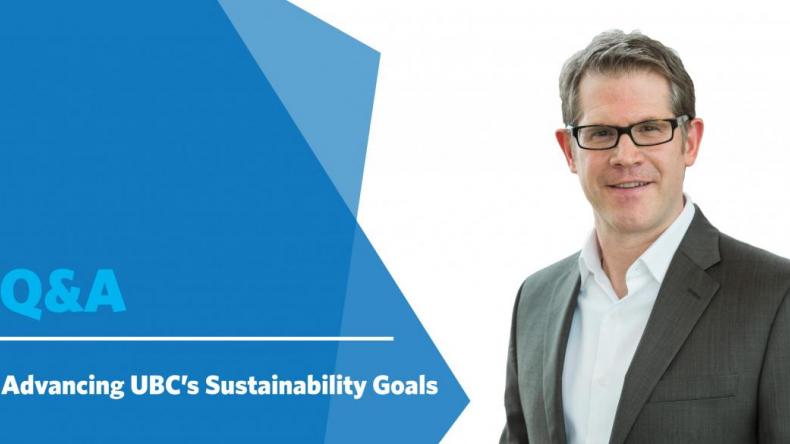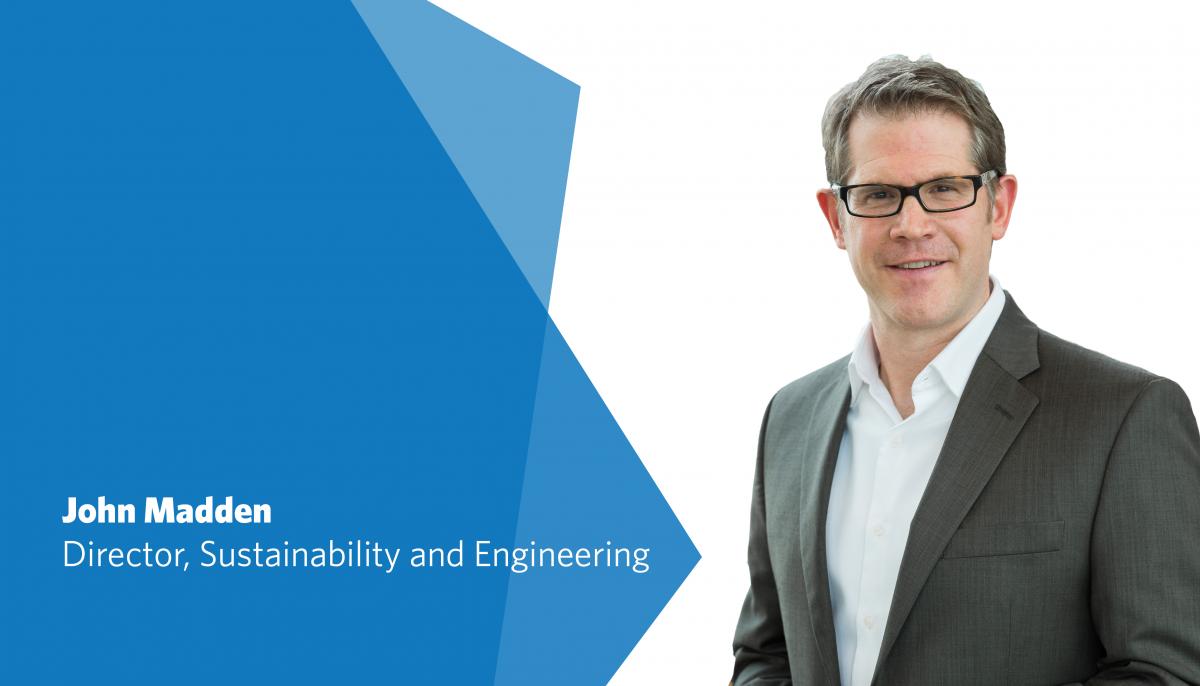
As UBC releases its Carbon Neutral Action Report, an update on its climate action initiatives, we sat down with John Madden, Director of Sustainability and Engineering, Campus and Community Planning, to understand what goes into making our campus carbon neutral.
Q. UBC recently released its Carbon Neutral Action Report. What does it mean to be a carbon neutral university?
British Columbia has set out regulations that require all public sector organizations including UBC to:
- Reduce emissions as much as possible each year;
- Measure any remaining GHG emissions from buildings, vehicle fleets, paper use, and government travel;
- Purchase an equivalent amount of emission reductions (offsets) to get to net-zero;
- and Report on achievements.
The Carbon Neutral Government Regulation defines carbon neutrality as achieving net-zero greenhouse gas (GHG) emissions.

Q. What is your role in regards to UBC’s climate action initiatives?
My role is to direct the work of Sustainability and Engineering in developing a plan that sets UBC on a course to achieve deep reductions in greenhouse gas emissions. We develop and deliver policies and programs that help us move toward our aggressive Climate Action target of 67% reduction below 2007 levels by 2020.
The focus of our work is developing policies and targeted actions that reduce greenhouse gas emissions through the day to day operations of the university.
Q. Is there a climate action achievement you are particularly proud of?
The most significant achievement was the 30% reduction in greenhouse gases below 2007 levels on the Vancouver campus, despite a 16% increase in floor space and 22% increase in student enrolment.
The reductions in greenhouse gases were largely attributed to the steam to hot water conversion project (District Energy), displacement of natural gas through the Bio-energy Research and Demonstration Facility and optimizing academic building performance through the Building Tune-Up Program.
We are projecting to reach 33% GHG reduction by the end of 2016 which will be a huge milestone for the university.
Q. You’re known for being passionate about sustainability. What drives you?
My passion for sustainability stems from the ability to create positive change. I’m excited to work with a talented and committed group of people to shift behaviours, and in the development of change management practices to shift institutional practice.
Collectively our actions have received global recognition. A few examples from this year include our second consecutive STARS Gold rating from the Association for Advancement of Sustainability in Higher Education for our overall sustainability efforts, an International District Energy Association Award for the Bio-energy Research and Demonstration Facility and an international award for student engagement for our SEEDS Sustainability Program.
Q. What inspired you to come and work at UBC?
One of the big attractions of working at UBC is its commitment to sustainability and the willingness to use the campus as a living lab to test innovative practices that help in the process of broader societal transformation.
Q. What is a one thing individuals can do today for a more sustainable tomorrow?
Addressing climate action individually is quite easy, it just requires a change in habits and making smarter choices.
I commute by bike from North Vancouver, eat one to two vegetarian meals per week, take shorter showers and dress appropriately during the seasons to reduce the need for heat or cooling.
If we are collectively more conscious about the day to day actions to reduce our impact on the environment we can make progressive steps towards reaching our climate targets.
Q. What’s next for climate action at UBC?
Our next initiative will assess alternatives to what UBC is using for energy on the Vancouver campus.
We are looking at biomass and renewable natural gas as low carbon alternatives to natural gas, which is what we currently use primarily. Moving to one or both of these energy alternatives has the potential to greatly reduce our GHG emissions. This assessment will be presented to Board of Governors next spring.
We are already starting to implement a number of actions that reduce greenhouse gas emissions through behavior change initiatives, including the green labs program, a new green office program that will be launched in the fall, and working with students in residences to reduce their energy and emissions footprint.
We are also very excited to launch a new Green Building Planning process to address energy and emissions across UBC’s portfolio of new and existing buildings.